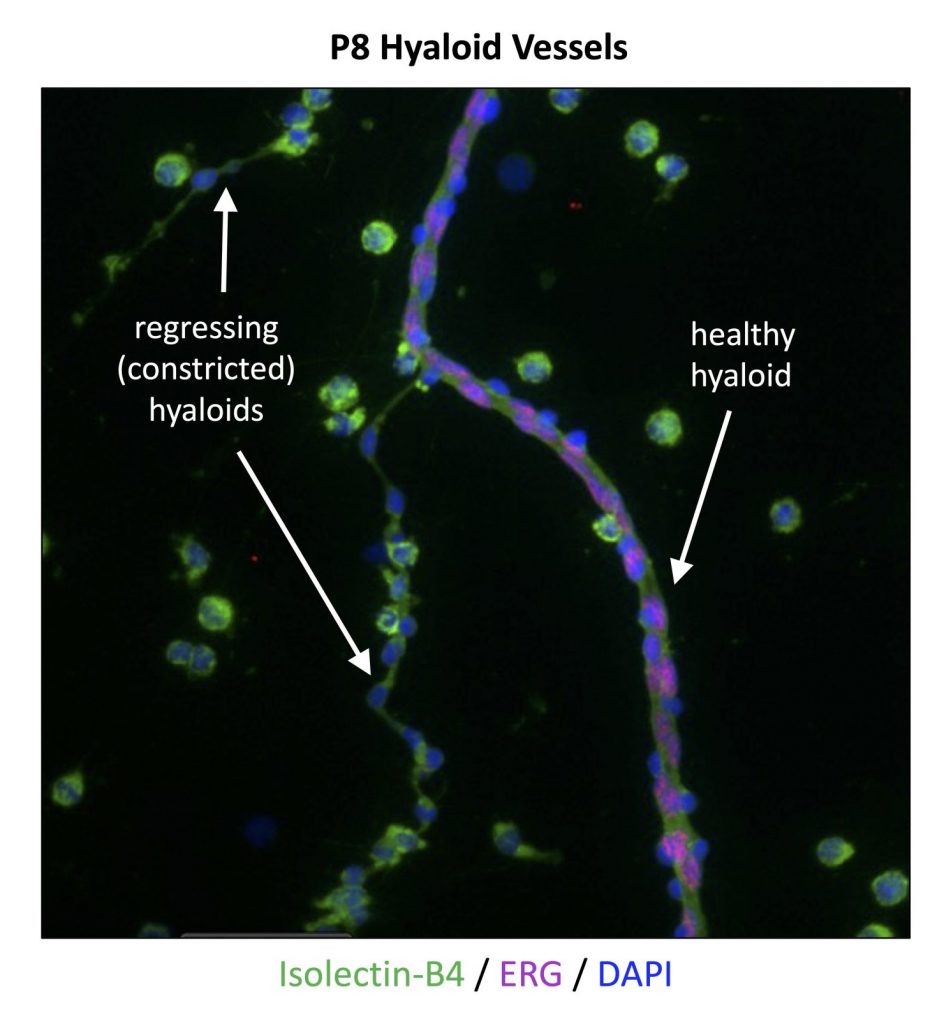
Hyaloid vessels from the eyes of an 8-day-old mouse were stained for Isolectin-B4 (green; also marks macrophages) and the endothelial cell marker ERG (pink). Note that ERG–an ETS transcription factor–is downregulated selectively in constricted/regressing hyaloid vessels.
Although vascular biologists have learned a lot about blood vessel growth over the last several decades, much less is known about the causes and effects of vascular regression. Our lab began studying capillary regression in collaboration with Dr. George Davis (Univ. of South Florida), and together we showed that inflammatory cytokines promote vascular regression both in vitro and in the hyaloid vessels of the newborn mouse eye (Koller et al, 2020). We subsequently discovered that the ETS transcription factors ERG and FLI1 are downregulated in constricted hyaloid vessels prior to regression. Moreover, a chemical inhibitor of ETS factors drives endothelial cell death under slow flow conditions and selectively regresses pathological slow-flow retinal vessels in a mouse model of oxygen-induced retinopathy (Schafer et al, 2020). We are currently exploring the mechanism through which ETS factor downregulation or inhibition under slow blood flow drives vascular regression. We are also studying triggers and consequences of pathological vascular regression in the context of acute kidney injury. Altogether, we are striving to learn when and how vascular regression occurs so that we can design therapeutic approaches to promote or prevent it in pathological settings.